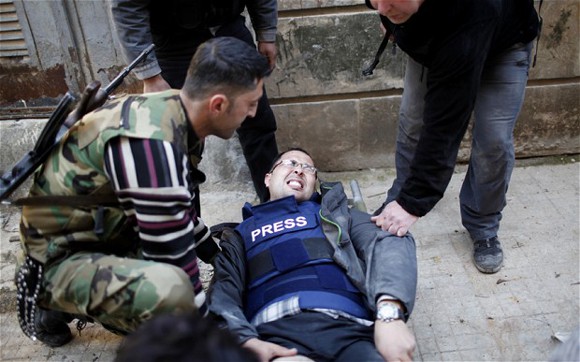
Amerykańska fundacja Freedom House opublikowała właśnie raport, z którego wynika, iż odsetek mieszkańców świata mających dostęp do wolnych mediów spadł w 2012 r. do najniższego poziomu od 10 lat.
Freedom House twierdzi po przeanalizowaniu sytuacji w 197 krajach, że mniej niż 14 proc. ludzi cieszy się prawdziwą wolnością prasy. 43 proc. światowej populacji żyje w krajach, gdzie jest częściowa wolność prasy, a kolejne 43 proc. – w krajach bez wolności prasy.
Najgorzej w raporcie wypadają: Białoruś, Kuba, Gwinea Równikowa, Erytrea, Iran, Korea Północna, Turkmenistan i Uzbekistan.
Najlepiej: Norwegia, Szwecja, Belgia, Finlandia i Holandia.
Wśród 63 krajów, które zostały uznane za cieszące się wolnością prasy po raz kolejny jest Polska – na 47. miejscu.
Stany Zjednoczone, w rankingu na 23. pozycji, też zostały uznane za kraj z wolnością prasy, ale raport wskazuje na zagrożenia, wynikające z pogarszającej się finansowej sytuacji mediów, a także z braku federalnego ustawodawstwa o ochronie źródeł.
Chiny i Rosja zostały kolejny raz zaliczone do państw bez wolności prasy.

World Press Freedom Day: journalists being deliberately targeted in Syria
Journalists are being deliberately targeted for kidnapping, arrest and torture in Syria, as the country becomes the most dangerous place in the world to report from, Amnesty International has said.
By Ruth Sherlock, Beirut
In a report published to mark World Press Freedom day, the human rights watchdog found that at least 36 journalists have been killed after being singled out for attack. Scores more have suffered enforced detentions and torture whilst reporting on human rights abuses inside the country.
„Deliberate attacks on civilians, including journalists, amount to war crimes for which the perpetrators must be brought to justice,” said Ann Harrison, Amnesty International Middle East and North Africa Deputy Director.
The abuses are being committed by both the government authorities and pro-government militias, as well as by opposition rebels.
In rebel held areas, the breakdown of law and order combined with a fundamental lack of understanding what independent journalism is has made it a lethal environment for journalists to operate in.
Opposition forces have mounted online campaigns against journalists, labelling them 'media shabiha’ the Amnesty International report has found.
Source:
http://www.telegraph.co.uk
